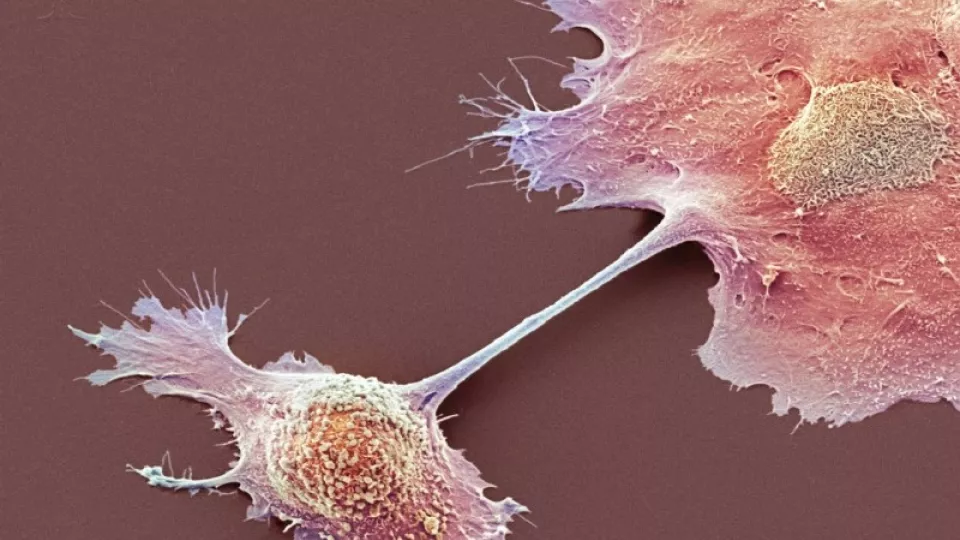This finding is of fundamental biological importance for the understanding of cancer cells functions and are now published in the scientific journal PNAS.
- These tumor cells represent less than one percent of all the cells in the tumor , but are still those that essentially control the tumor growing and spread , says Eliane Cortez, PhD student at the Department of Laboratory Medicine at Lund University and first author of the study.
Recent studies have previously shown that tumors are comprised of several types of cancer cells with different genetic alterations.
- The fact that there are so many different types of cells within the same tumor could explain why only some cancer cells have the ability to spread and why some patients experience a recurrence of their tumor disease despite undergoing extensive treatment , says Kristian Pietras , professor Department of laboratory medicine at Lund University.
A type of protein (PDGFD) is secreted from the blood vessels of the tumour, and sends signals to a receptor (PDGFRβ). Kristian Pietras and co-workes identified this receptor on the surface of a small percentage of cancer cells in pancreatic neuroendocrine tumors. In turn, they showed this minority of cancer cells secrete growth factors to other cells in the tumour, resulting in the growth of the entire tumour. By using mice genetically deficient for the Pdgfd-gene, they could show result that the entire tumor growth slowed dramatically, despite the fact that the measure had a direct impact on a very small percentage of the tumor cells. PDGFD signaling through PDGFRβ has been previously described in other types of tissues and tumors, but never in this variant of cancer.
Taken together, the use of drugs targeting PDGFRβ signaling, such as the approved targeted therapy sunitinib, may affect the functional intratumoral cross talk in pancreatic neuroendocrine tumors.
Swedish news link here.
The study was funded by a donation from George and Bridget Grosskopf , the European Research Council , the Swedish Cancer Society , the Swedish Research Council and Biocare - the strategic program for cancer research at Lund University.


